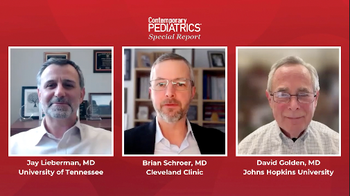
Weight-based bullying linked to adolescent substance use
Adolescents, particularly overweight girls, who are bullied about their weight are more likely to use alcohol and marijuana, according to a new study.
Adolescents who are bullied about their weight may be more likely to use alcohol or marijuana than non-bullied peers, according to a new study from the American Psychological Association’s journal
Investigators looked at a sample of 1344 students from 5 public middle schools in Hartford, Connecticut, with a slight majority of girls and non-Hispanic white participants. Each child completed a survey asking about general demographics, depressive symptoms, appearance-based teasing perpetrated by peers, siblings or family, general peer victimization, substance use, and weight status. The survey was given twice, in the fall of 2016 (T1) and spring of 2017 (T2).
At T1, more than half (55%) of the participants reported weight-based teasing, including:
- 76% overweight girls
- 71% of overweight boys
- 52% of girls who weren't overweight
- 43% of boys who weren't overweight
Effects of weight-based bullying
The findings at T1 showed that frequent appearance-related teasing was linked with higher concurrent levels of binge drinking, total alcohol consumption, and marijuana use (P<0.001). Additionally, more frequent appearance-related teasing reported at T1 predicted greater increases in binge drinking frequency (P<0.05) and total alcohol consumption (P<0.01) in the T2 results. No change was seen in marijuana use (P>0.05) between T1 and T2.
Using moderation analyses, the researchers found that the association between appearance-related teasing and alcohol use was stronger in adolescent girls than their male peers and in participants who were overweight or obese.
To mitigate these effects, clinicians should consider asking vulnerable patients if they are the target of appearance-related teasing; discussing the harms of such teasing to parents, especially if they engage in it with their children; inquiring about substance use in overweight or obese patients; and advocating locally for schools to specifically address appearance-related teasing in anti-bullying policies and substance-use interventions.
References:
1. Klinck M, Vannucci A, Fagle T, Ohannessian CM. Appearance-related teasing and substance use during early adolescence. Psychol Addict Behav. February 10, 2020. Epub ahead of print. DOI: 10.1037/adb0000563
Newsletter
Access practical, evidence-based guidance to support better care for our youngest patients. Join our email list for the latest clinical updates.



